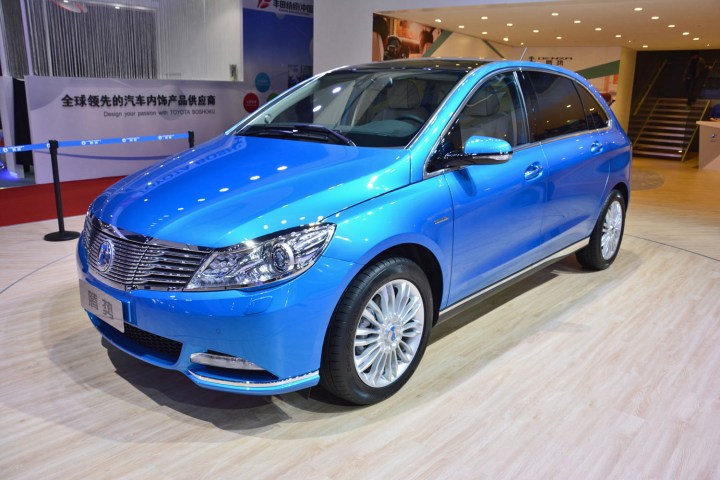
Called 400, the only model in the Denza lineup is based on the last generation of the Mercedes B-Class so its chassis isn’t what we’d call state-of-the-art. The same can’t be said about its drivetrain, which is made up of a compact electric motor that zaps the front wheels with 181 horsepower and 221 pound-feet of instant torque, and a 62kWh battery pack mounted under the passenger compartment.
The pack stores enough juice to give the 400 a 250-mile driving range. The company points out on its official website that driving at a steady 40 mph bumps that figure up to about 293 miles, however. In comparison, a Nissan Leaf can drive for 107 miles on a single charge, while a base model Tesla Model X 60D is rated at 200 miles. Denza explains that Chinese motorists will likely only need to charge the 400 once a week because they drive approximately 40 miles a day on average.
Denza’s newest model is on sale now in China. Pricing for the midlevel Executive trim starts at 415,800 yuan, a sum that represents roughly $62,606 at the current conversion rate. EV buyers are eligible to receive hefty rebates from the local and national government, and they benefit from a generous tax break. When all is said and done, the Denza 400 Executive’s base price falls to 305,800 yuan, which converts to approximately $46,000. Pricing for the base model or the range-topping Aurora trim hasn’t been released yet.
Read more: Shareholders ask Mercedes why it hasn’t built a Tesla-rivaling model yet
The Denza 400 is made and exclusively sold in China. At the time of writing, the company isn’t planning to take on the Tesla Model 3 and the Chevrolet Bolt on the long-range, mass-market EV segment.
Editors' Recommendations
- Tesla Model 3 Highland: release date, range, design update, and more
- BMW i4 vs. Tesla Model 3: Which EV sedan is better?
- Tesla delivers first electric cars from its new factory in China
- 2020 Chevrolet Bolt EV rated at 259 miles of range, outpacing most rivals





